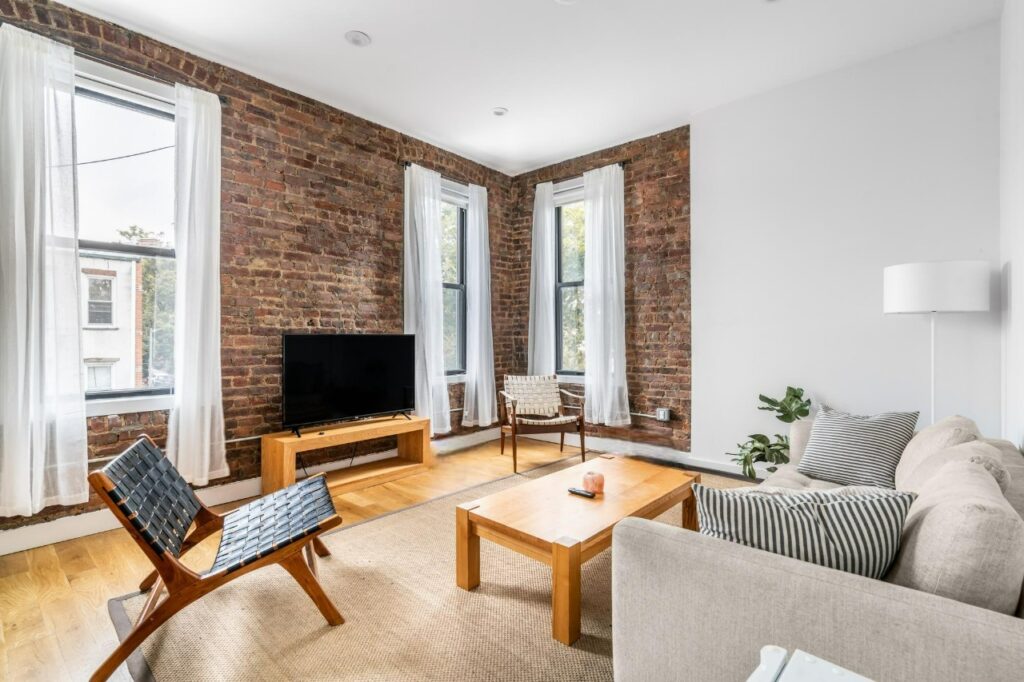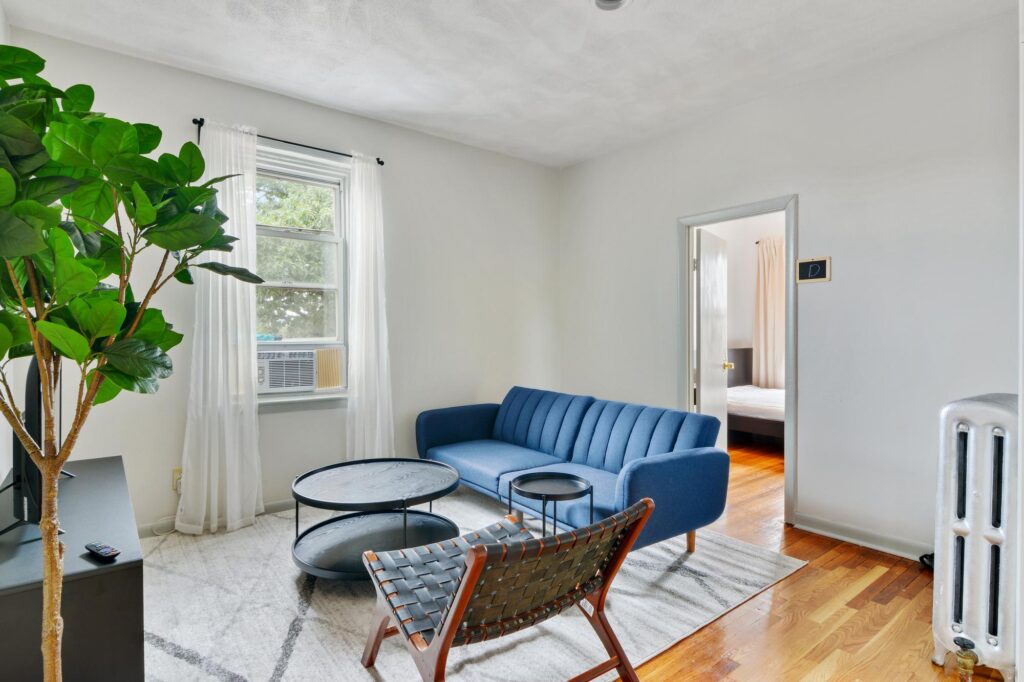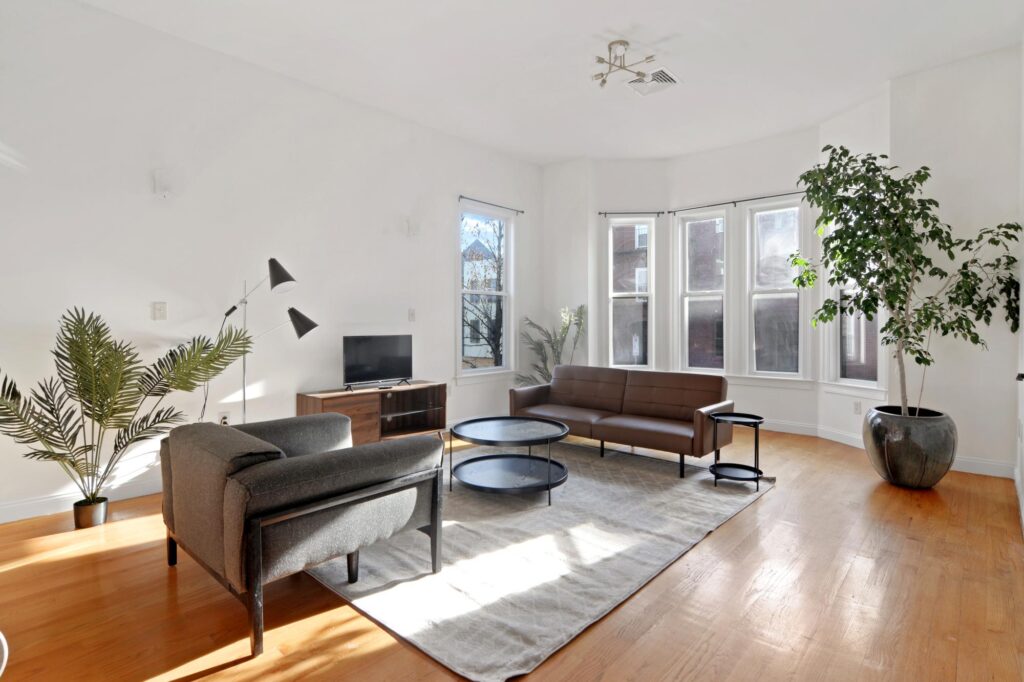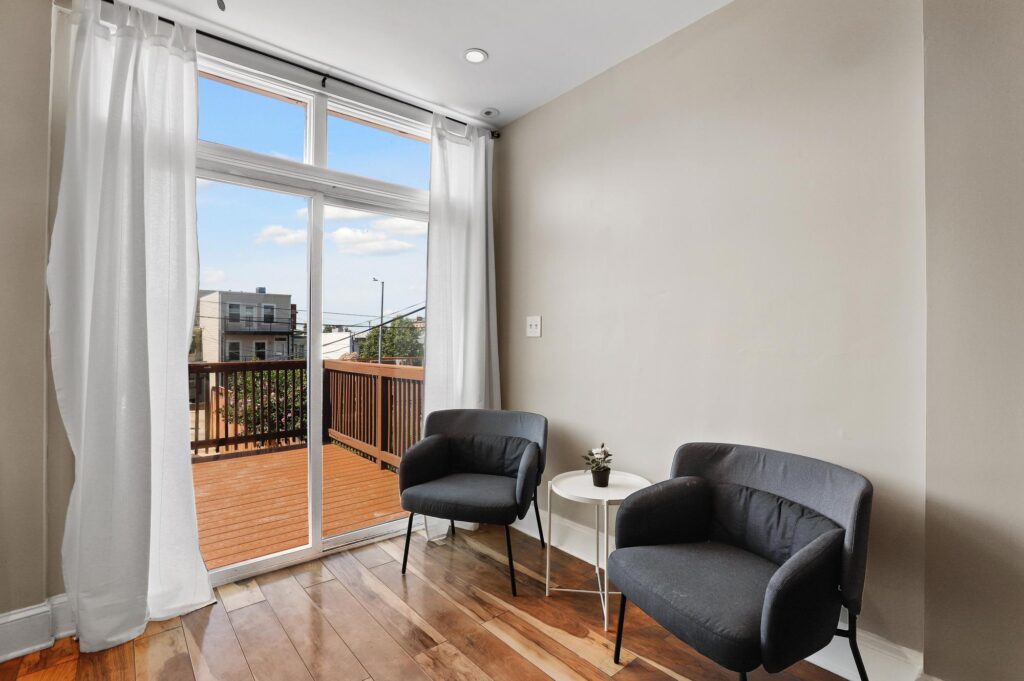
Estimated reading time: 10 minutes
How long does it take to get approved for an apartment? When it comes to the typical timeframe for apartment application approval, most applicants can expect a decision within 24 to 72 hours after submission. However, this duration can extend up to a week or more in certain cases.
This time frame depends on several factors, including the thoroughness of your application, the landlord’s or management company’s efficiency, and the specific requirements of the property. In this article, we’ll explore these factors in detail to give you a clearer understanding of what to expect during your apartment application journey.
For renters looking for a swift and streamlined application process, June Homes offers an appealing solution. Their entire application procedure is conducted online and can be completed in just a few hours.
Enjoy a hassle-free, high-end rental experience for stays of one month or longer in major US cities.

Fully-furnished rooms and apartments with flexible lease. Apply today and move in tomorrow.
Your application will receive a response within a maximum of 24 hours, with an average approval time of just 3 hours. Once approved, you will be sent a lease agreement to sign electronically, along with an invoice for upfront payments.
Table of contents
Key Takeaways
- Approval Time Varies: Typically, apartment application approval can take from 24 hours to a few days, but complex cases may extend up to a week or more.
- Preparation is Key: Having all necessary documents ready and ensuring your application is complete and accurate can speed up the process.
- Understand the Process: Familiarize yourself with the steps involved, from application submission to background and credit checks, to ensure you’re well-prepared.
- Overcome Obstacles: Address potential red flags like poor credit history or insufficient income proactively to improve your chances of approval.
- Smooth Transition to Moving In: Once approved, promptly sign the lease, make necessary payments, and arrange for utilities and moving logistics.
Factors Influencing Approval Time
The time it takes to get approved for an apartment can be influenced by a multitude of factors:
- Completeness of Your Application: One of the primary reasons for delays is incomplete applications. Ensure all sections are filled out accurately and all required documents are submitted. Missing information can significantly slow down the process.
- Background and Credit Checks: Landlords often conduct background and credit checks to assess your reliability as a tenant. The time it takes to complete these checks can vary, but they are crucial for landlords to evaluate your rental and financial history.
- Employment History and Income Verification: Verifying your employment status and income is a standard procedure. This process can take time, especially if the landlord contacts your employer directly for confirmation.
- Rental History: If you have a history of renting, landlords will likely reach out to your previous landlords to verify your tenancy. This step is essential to confirm you have been a responsible and reliable tenant in the past.
- Income Verification: In addition to your employment status, your income will be scrutinized to ensure you can afford the rent. Proof of income through pay stubs or bank statements is typically required.
- Reference Checks: Providing references, and the landlord subsequently contacting them, is another step that can add time to the approval process.
- Co-Applicant or Co-Signer Approval: If you are applying with a co-applicant or have a co-signer, their information will also need to be verified, which can add time to the process.
- Property-Specific Requirements: Different properties may have unique requirements or standards that can influence the length of the application process.
Tips for a Quicker Approval
Getting approved for an apartment can sometimes feel like a waiting game. However, there are actionable steps you can take to speed up the approval process. Here are some tips, including insights from leading real estate sources, to help you secure that apartment faster.
- Your Documents in Advance: Gather all necessary documents before you start the application process. This includes your ID, proof of income (like pay stubs or bank statements), rental history, and reference contact details.
- Ensure Application Accuracy: Double-check your application for accuracy and completeness. Errors or missing information can cause delays, as the landlord will need to contact you for clarification.ime and manage your debts wisely to maintain a strong credit profile.
- Be Responsive: Stay responsive to any communication from the landlord or property manager. Prompt responses can keep the process moving smoothly.
- Provide Reliable References: Choose references who will speak positively about your reliability and responsibility. Inform them in advance that they might be contacted.
- Follow Up Proactively: After submitting your application, a polite follow-up can show your keen interest in the property and ensure your application doesn’t get overlooked.
- Be Honest and Transparent: If there are potential red flags in your application, such as a poor credit history, be upfront about them. Offering an explanation can sometimes mitigate concerns.
- Apply During Off-Peak Seasons: If possible, consider applying during off-peak rental seasons when landlords might be more motivated to fill vacancies quickly.
Common Mistakes to Avoid
“As someone with extensive experience in the moving industry, I’ve seen firsthand how certain mistakes can derail an otherwise smooth apartment application process”, says Marketing Director at 3 Men Movers. Here are two critical pitfalls to avoid:
- Ignoring Credit Issues: It’s crucial to address any credit issues upfront rather than hoping they won’t be noticed. Being proactive about your credit situation shows landlords that you’re responsible and transparent, which can significantly improve your chances of approval.
- Providing Inaccurate Information: Always provide truthful and accurate information to avoid complications. Inaccuracies can lead to delays or even rejections, so it’s essential to double-check all the details in your application. Remember, honesty is always the best policy when it comes to securing your new home.
Dealing with Potential Obstacles
While navigating the apartment application process, you might encounter certain obstacles that can hinder your chances of approval. Being aware of these common red flags and knowing how to address them can significantly improve your application’s success rate.
Poor Credit History
Red Flag: A low credit score or a history of late payments can be a major concern for landlords.
Overcoming It: If possible, work on improving your credit score before applying. Alternatively, offer to pay a higher security deposit or find a co-signer with a strong credit history.
Insufficient Income
Red Flag: If your income is deemed insufficient to comfortably cover the rent, landlords might be hesitant.
Overcoming It: You can present additional financial documents showing savings or investments. Another option is to apply with a roommate to combine incomes.
Negative Rental History
Red Flag: Past evictions or disputes with previous landlords can raise concerns about your tenancy.
Overcoming It: Be upfront about any past issues and provide context. Show evidence of how you’ve grown or changed since then.
Gaps in Employment
Red Flag: Unexplained gaps in employment can be a warning sign for landlords about income stability.
Overcoming It: Explain any employment gaps in your application. If they were due to studying, traveling, or personal reasons, make sure to clarify.
Criminal Record
Red Flag: A criminal record can be a serious obstacle, depending on its nature and severity.
Overcoming It: Be honest about your history. Many landlords are willing to consider the circumstances and how long ago the offenses occurred.
Incomplete Application
Red Flag: An application that’s missing information or documents can delay the process or lead to outright rejection.
Overcoming It: Double-check your application before submitting to ensure that all fields are filled and all required documents are attached.
Moving In: The Final Steps
Signing the Lease
Immediately after approval, you’ll typically be presented with a lease agreement.
Review this document carefully, as it outlines your rights and responsibilities as a tenant, as well as those of the landlord.
If you have any questions or concerns about the lease terms, don’t hesitate to discuss them with the landlord or a legal advisor before signing.
Paying Deposits and First Month’s Rent
Most landlords require a security deposit and the first month’s rent upon signing the lease. This can be a significant amount, so it’s important to be financially prepared.
The security deposit is usually refundable at the end of your lease term, provided the property is left in good condition.
Setting Up Utilities and Services
Depending on the terms of your lease, you may need to set up utilities like electricity, water, gas, and internet. This should be done as soon as possible to ensure they are active by the time you move in.
Don’t forget to also update your address for mail and any services or subscriptions you use.
Planning the Move
Organize your moving logistics. This may involve hiring a moving company, renting a truck, or enlisting the help of friends and family.
Packing and preparing your belongings in advance can help make moving day more efficient and less stressful.
The Move-In Day
On the day of the move, conduct a walk-through with the landlord or property manager. Document any pre-existing damages to ensure you’re not held responsible for them later.
Once everything is moved in, take the time to settle and organize your new space.
Final Advice and Encouragement
Renting a new apartment is a significant milestone, and while the process may seem daunting, it’s entirely achievable with the right approach. Stay organized, be honest in your application, and don’t hesitate to ask questions if you’re unsure about anything. Remember, this journey is not just about finding a place to live, but about creating a home for yourself.
FAQ Section
Q: Can I negotiate the rent or terms of the lease?
A: It’s always worth discussing with the landlord if there’s room for negotiation, whether it’s the rent amount or specific terms in the lease. However, this depends largely on the landlord’s policies and the rental market demand.
Q: What if I have a pet?
A: Check the apartment’s pet policy before applying. Some places are pet-friendly, while others might have restrictions or require a pet deposit.
Q: What should I do if my application is denied?
A: Ask the landlord or property manager for the reason for denial. This information can help you address any issues before applying for another apartment.
Q: Is renters insurance necessary?
A: Many landlords require renters insurance. It’s also a good idea to have it for your own protection, as it covers personal property damage and liability.
Q: Can I break a lease early if I need to?
A: Lease agreements typically have terms for early termination, which may involve a penalty or require you to find a replacement tenant. Review your lease agreement for specific details.
Q: How long does it take to move into an apartment?
A: From the moment of approval, moving in can typically happen within a few days to a week, depending on how quickly the lease is signed and the initial payments are made. However, this timeline can be shorter or longer based on factors such as the readiness of the apartment, your personal preparedness, and the scheduling of the move itself.




